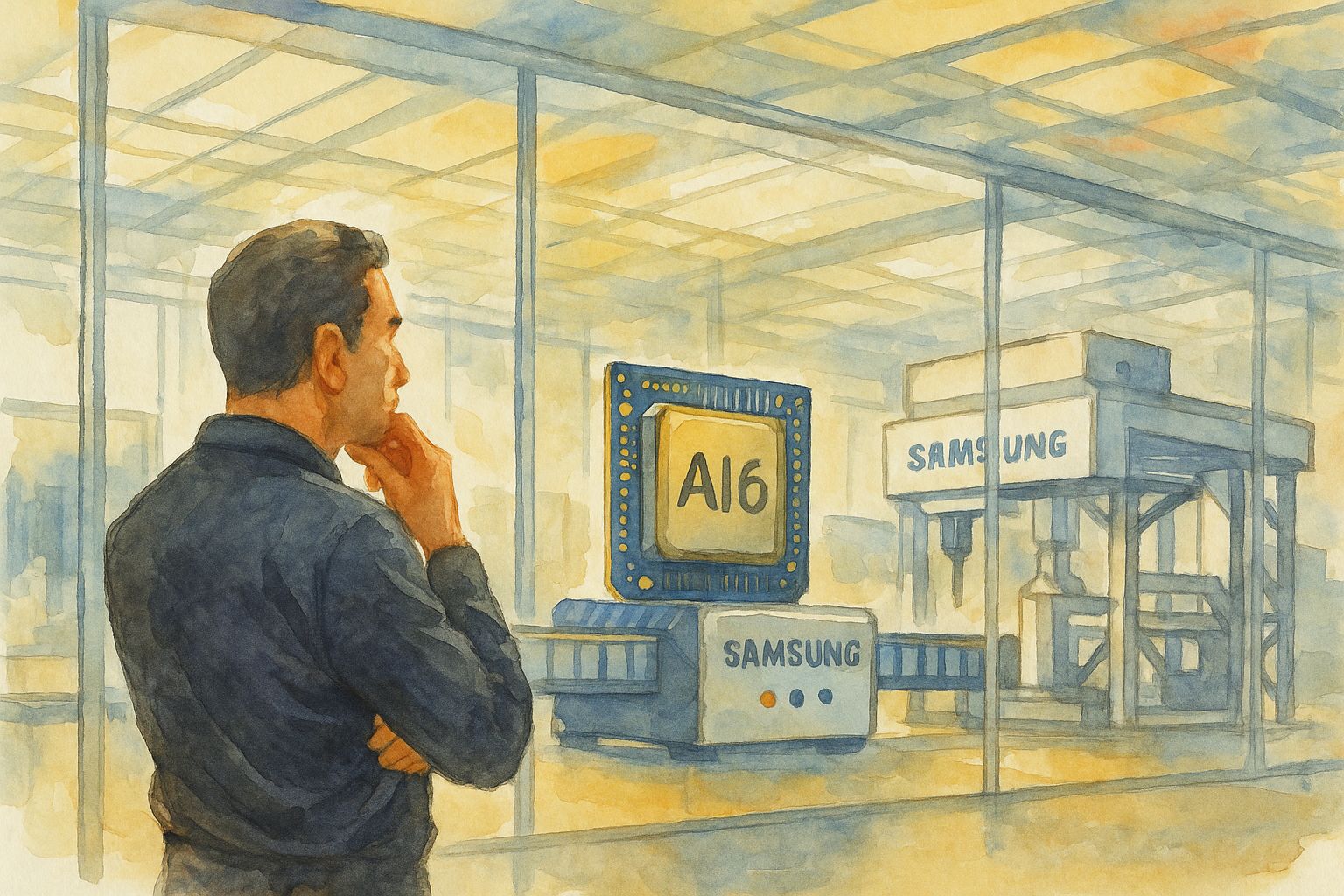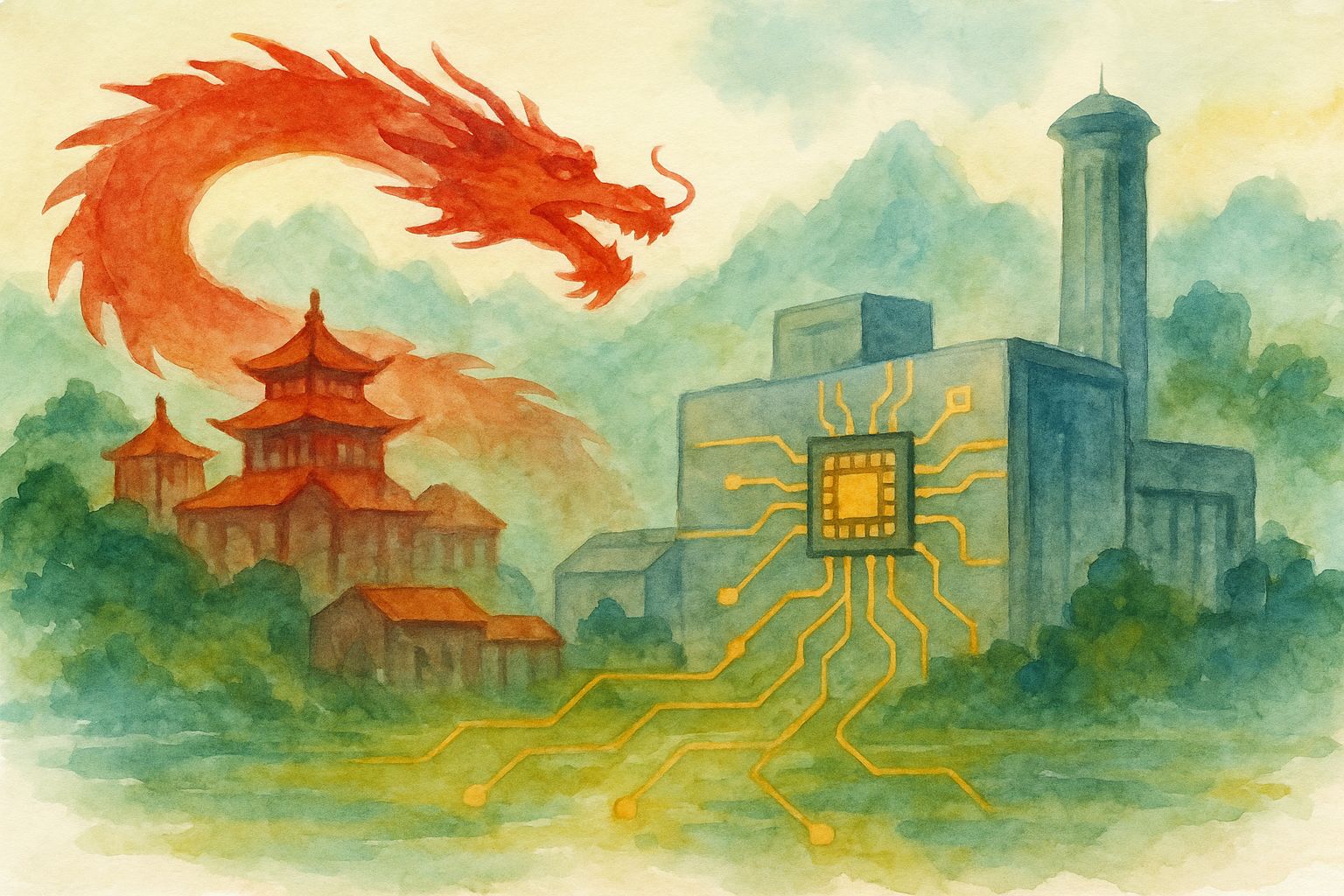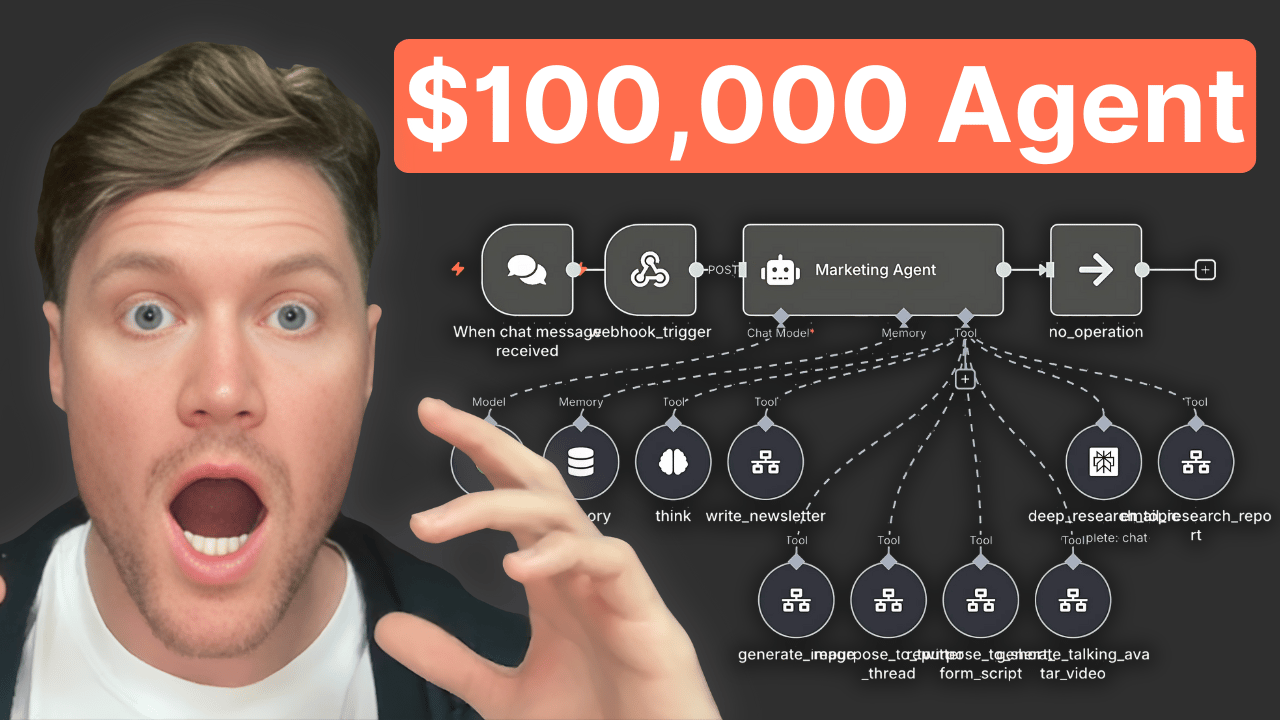- The Recap AI
- Posts
- Tesla and Samsung's $16.5B AI chip deal
Tesla and Samsung's $16.5B AI chip deal
PLUS: The ex-OpenAI CTO's $2B seed round and Microsoft's new Copilot Mode
Good morning, AI enthusiast.
Tesla just inked a massive $16.5 billion deal with Samsung, securing a partner to produce its next generation of custom AI chips. The move significantly accelerates its AI hardware roadmap for autonomous driving and robotics.
The partnership provides a critical lifeline for Samsung's US chip manufacturing ambitions, giving its new Texas factory a vital anchor client. With Elon Musk personally overseeing production, will this hands-on approach give Tesla a decisive edge in the custom silicon race?
In today’s AI recap:
How we replaced our marketing team with an AI Agent (watch here)
Tesla and Samsung's $16.5B AI chip deal
An ex-OpenAI CTO's $2B seed round
Microsoft's new Copilot Mode for Edge
China's strategy for AI self-sufficiency
Tesla's $16.5B Chip Deal

The Recap: Tesla is supercharging its AI ambitions with a massive $16.5 billion deal with Samsung to produce its next-generation AI6 chips. In a post on X, Elon Musk confirmed the deal, noting the chips will be made at Samsung's new factory in Taylor, Texas.
Unpacked:
Musk is taking a hands-on approach, stating he will “walk the line personally” at the Texas plant to accelerate progress and ensure manufacturing efficiency.
The contract is a major victory for Samsung's foundry business, securing a vital anchor client for its new US facility and boosting its position against market leader TSMC.
This deal diversifies Tesla's chip supply, with Samsung set to produce the future AI6 chip while competitor TSMC is already slated to manufacture the upcoming AI5 chip.
Bottom line: This partnership secures a critical supply of custom silicon to power Tesla's future in autonomous driving and robotics. For Samsung, landing Tesla as a flagship customer for its Texas factory significantly enhances its credibility in the high-stakes chip manufacturing race.
The $2 Billion Seed Round

The Recap: Former OpenAI CTO Mira Murati has secured a record-shattering $2 billion seed round for her new AI venture, Thinking Machines Lab, instantly launching it into the top tier of competitors with a $12 billion valuation.
Unpacked:
This is the largest seed round in venture capital history, a figure made more extraordinary considering startups founded solely by women received just 2.1% of all VC funding last year.
The company aims to build powerful AI systems to tackle global challenges like climate change and disease, with plans for a significant open-source offering to support the broader research community.
Murati is joined by top talent from OpenAI, and the massive war chest is essential to compete for compute power and talent against established leaders like OpenAI, Anthropic, and Google.
Bottom line: This funding immediately positions Thinking Machines Lab as a formidable new force in the AI development race. Murati's achievement also diversifies the perspectives shaping frontier AI and sets a groundbreaking precedent for female founders in technology.
AI Training
The Recap: We replaced our marketing team here at The Recap with this voice agent. It writes our daily newsletter, repurposes content for Twitter, writes short form video scripts for TikTok, and generates videos. In this video, we break down how to build an agent just like this for your own business or for your client's business.
P.S We also launched a free community for AI Builders looking to master the art and science of building AI Automations — Come join us!
Microsoft's AI Browser

The Recap: Microsoft is evolving its Edge browser into an AI assistant with the launch of a new experimental mode, "Copilot Mode." The feature aims to transform browsing into a collaborative partnership where the AI understands context, anticipates needs, and automates tasks.
Unpacked:
With user permission, Copilot can view open tabs to understand the full context of your research, allowing it to compare options across different websites.
The assistant can take actions on your behalf, starting with voice navigation and soon handling more complex tasks like booking reservations and managing errands.
This opt-in feature is rolling out for free on Windows and Mac for a limited time in all Copilot markets.
Bottom line: This initiative signals a fundamental shift toward a web experience where your browser actively collaborates with you. Microsoft is betting on deep OS and browser integration to create a more seamless AI assistant than its web-only competitors.
Where AI Experts Share Their Best Work
Join our Free AI Automation Community
Join our FREE community AI Automation Mastery — where entrepreneurs, AI builders, and AI agency owners share templates, solve problems together, and learn from each other's wins (and mistakes).
What makes our community different:
Real peer support from people building actual AI businesses
Complete access to download our automation library of battle-tested n8n templates
Collaborate and problem-solve with AI experts when you get stuck
Dive into our course materials, collaborate with experienced builders, and turn automation challenges into shared wins. Join here (completely free).
China's AI Countermove

The Recap: In response to U.S. sanctions, China’s leading AI companies are forming new alliances to build a self-reliant domestic tech ecosystem. These strategic partnerships aim to create a complete technology chain, from chip manufacturing to large language models.
Unpacked:
One alliance directly connects LLM developers with sanctioned chipmakers like Huawei and Biren to create an integrated model-to-chip pipeline.
Another group, including major players like SenseTime, focuses on embedding AI deeper into industrial transformation across the country.
The strategy also includes hardware innovation, with Huawei showcasing a computing system that uses clustering to compete with top-tier Nvidia offerings.
Bottom line: These moves signal a coordinated national strategy to overcome foreign technology dependencies and spur homegrown innovation. This could significantly accelerate China's progress toward AI self-sufficiency, creating a powerful ecosystem outside of Western influence.
The Shortlist
Meta faces a new lawsuit from adult film company Strike 3 Holdings, which alleges the tech giant pirated and seeded thousands of its films on BitTorrent to accelerate the download of other data for AI training.
Mistral released a first-of-its-kind environmental audit, revealing that training and running its models over 18 months produced 20.4 kilotons of CO2 and used 281,000 cubic meters of water.
Auterion will ship 33,000 AI-powered “strike kits” to Ukraine as part of a $50 million Pentagon contract, which can convert manually-operated drones into autonomous, jam-proof weapons.
Security researchers revealed how simple Google searches can uncover sensitive API keys, passwords, and tokens inadvertently exposed by users in publicly shared conversations from ChatGPT, Grok, and other AI tools.
What did you think of today's email?Before you go we’d love to know what you thought of today's newsletter. We read every single message to help improve The Recap experience. |
Signing off,
David, Lucas, Mitchell — The Recap editorial team

